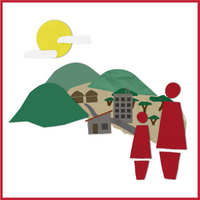Rozaria Memorial Trust (RMT), the Women’s Refugee Commission (WRC) and Kings College London (King’s), partnership to advance gender equality in humanitarian action by bridging sectoral silos and the humanitarian-development peace nexus within the response to child marriage. They generated evidence to support collective advocacy for the institutions to strengthen mechanisms that advance efforts and expedite progress toward the elimination of child marriage The partners therefore developed a Feminist Vision for Ending Child Marriage in Humanitarian Settings for East Africa and Southern Africa Roadmap 2023-2027.
The feminist vision roadmap seeks to position women and girls as change agents and community leaders by ensuring that women’s rights advocates are actively involved in crisis preparedness and response. During the UN Commission on Status of Women 67 session the partners hosted, Adreas Ahrenfeld Kiaby of the Ministry of Foreign Affairs of Denmark mentioned “humanitarian programming needs to be people- centric on issues around child marriage and helping married girls to rebuild their lives”.
The roadmap was developed through the voices and experiences of feminist actors and their understandings of gender transformation and patriarchy. The rationale behind this this roadmap is the realization of the value of pioneering innovative meaningful, effective, and inclusive that create spaces for cross-sector and cross-nexus collaboration that enable new avenues for integrated working together.
The partners came together in 2021 to form a new consortium with the goal of better positioning of feminist and women-led civil society organizations in disaster preparedness, management, and response on a local, national, and regional level in East and Southern Africa.
The roadmap was developed and informed by participatory action research which used a consensus Delphi study approach with representatives from feminist organizations, women led and feminist actors with high turnout of grassroot organization in East Africa (Burundi, Djibouti, Ethiopia, Kenya, Rwanda, Somalia, South Sudan, Tanzania and Uganda).
The study under the topic, Child Marriage in Humanitarian Settings in East Africa- Integrating the response to child marriage was undertaken after an extensive review of academic peer-reviewed literature and grey literature had revealed four critical aspects where efforts should be made to ensure the timely and comprehensive response to child marriage in crises; disconnect between gender equality and child marriage, weak linkages of humanitarian practice with national systems and local actors, lack of localised theories of change.
The expected outcomes of the road map by 2027 include:
- Feminist and women’s rights actors are well trained, well resourced, and well positioned to transform practice and policies that drive humanitarian preparedness and response through local to regional spaces.
- High quality, evidence-based gender-transformative services and programmes are implemented in each phase of an emergency by place-based actors that are responsive to the needs and priorities of girls in all their diversity.
- Intra-and inter-governmental mechanisms that govern disaster prevention and response are strengthened to improve functioning and coordination of national systems critical for women and girls, including social protection, health, education, and justice.
- Funding is available for child marriage prevention and response for each phase of an emergency and in a manner that prioritises localised capacity strengthening and implementation.
- To realise the implementation of the road map, the consortium intends to strengthen technical capacity of feminist and women’s rights organisations to support implementation and advocacy objectives.
In the first two years of the roadmap, the consortium will prioritize four areas that need investment in its implementation: establishment of local, national and regional action plans through an established Secretariat to facilitate coordinated, collective action, strengthening trust, transparency, and accountability through inclusion and partnership development, establishing local, national, and regional action plans to expedite progress, funding and resources for collective action.
The partners are bracing and share recommendations for the building up of a collaborative consortium across the nexus and across actors with the understanding of the barriers to effective collaboration. These were mentioned by participants that include dominance of large or international organizations and challenges with building trust among diverse stakeholders which they call for action to dedicated and equitable funding for collaboration across sectors and across the nexus and the creation of Memorandum of Understandings (MOUs) to increase ownership and commitment, to help build trust, to establish a shared vision and common goal underpinned by shared principles, particularly as child marriage is not always understood in the same away across different sectors/actors.
